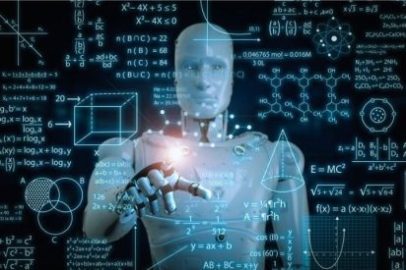The influence of AI in real life is a little different from what is portrayed in cinematic history. The idea is to have more significant interaction between humans and machines, which can occur in different ways, such as through buttons or voice recognition.
Considering this context, it is clear that this technology is already present in everyday life, especially in the corporate world. But how does this happen, and what characterizes AI? That’s what we’ll cover in this article.
So how about knowing more?
The Concept Of Artificial Intelligence
This branch of technology consists of the study and development of devices that simulate the human ability to perceive, reason, solve problems and make decisions. Thus, the software performs more operational tasks and services. This allows human beings to act more strategically.
There are currently several AI jobs in real life. Some examples are speech recognition, games, security applications for information systems, handwriting identification devices, and auxiliary robots — such as bots, which automatically assist a company’s customers.
In the corporate world, this technology has changed the way of doing business in various segments of commerce, industry, and retail. Therefore, according to data released by the Market Wired website, 62% of companies are expected to use their resources in some way in 2018.
The Benefits Of AI In The Corporate World
This technology already impacts our routine, but it should bring many other positive changes to the business environment. Some of the changes can be seen in self-driving cars, virtual attendants, robots that make medical diagnoses, and even drones that deliver products.
The transformations must still be more significant. A survey by Tata Consultancy Services, released by the website Convergence Digital, highlighted that 84% of companies consider AI fundamental for competitiveness, with 50% believing it transformative.
The study also showed that the companies that invested the most in this technology increased their revenue by 16%, on average. In comparison, those that used approximately five times fewer resources grew by 5%.
But what are the real advantages of AI? Check out some benefits below.
Increased Productivity
This technology will change the job market and increase the productivity of many positions. New qualified posts must be created, with the consequent generation of opportunities. According to data released on the LG Blog, the expectation is to save 6.2 billion hours of activities.
Reduction Of The Chance Of Errors In The Processes
The activities with the highest human error rate should be passed on to the AI to reduce these occurrences. This is the case for taking sales orders, submitting inventory requests, reviewing specific materials such as videos and translations, etc.
Process Automation
This benefit is derived from the previous one, as AI and automation are complementary. The idea here is to facilitate routine activities and learn the features preferred by users to make the experience more pleasant. In the same way, data becomes more accessible so that decision-making is proper.
Improved Customer Relationship
AI allows companies to solve problems quickly and anticipate future purchases. The customer experience is also improved, which tends to increase sales. In addition, it is possible to customize the service to retain the consumer.
Examples Of Applications Of Artificial Intelligence In The Corporate World
Companies are already embracing AI and are expected to increase the use of this technology in the coming years. See some examples below.
Use Of Virtual Assistants And Chatbots
Service to users is vastly improved with these resources, which can interact with consumers, learn their preferences and anticipate them according to the behavior adopted. This is because virtual assistants and chatbots are linked to the corporate database and thus can effectively transform information.
Among the possibilities contemplated are the recognition of telephone numbers, names, and other vital aspects to reproduce human behavior. Likewise, it stores essential information, forwards requests, and solves the most straightforward problems.
Cross-Check
Business systems can collect more information by AI about customers, and this data can be arranged in an organized way. Easy access streamlines, simplifies, and brings efficiency to service, allowing consumers to check the information they want when they need it.
This information also helps to create a pattern of customer behavior by defining profiles and cross-referencing data between those with similar characteristics. A straightforward application of this question is the “suggested items” of e-commerce.
Improved Use Of Generated Data
The storage and processing of information, along with AI, facilitated the use of generated data, which helps to obtain insights about customers. This aspect is directly reflected in the service by reducing time and eliminating the need to pass on data each time it is attended to.
In the same way, it is possible to do more effective analyzes that transform data into information. Thus, it is possible to make a clear assessment of the processes to make accurate decisions based on broad knowledge.
Customer Profiling
This characteristic results in personalized and agile service since the relationship with the customer becomes closer and based on the consumer’s profile. AI allows you to organize and generate data to learn about buyer behavior. Among them are the best hours and means of contact, products and services most consumed, and so on.
Also Read: Artificial Intelligence: The Role Of AI In Business Management


